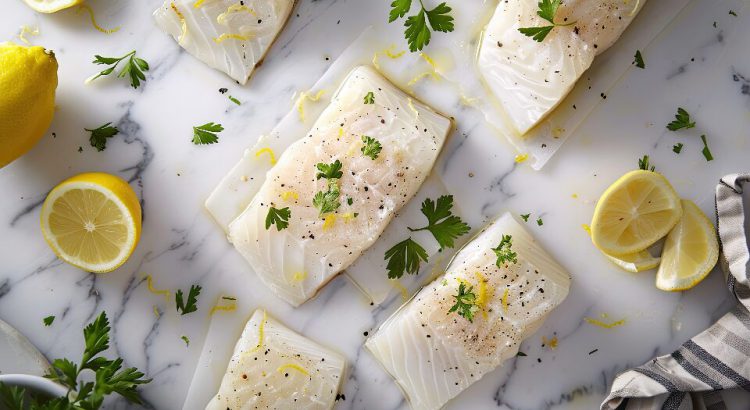We hear a lot of talk about omega 3 fatty acids and salmon, but cod is another excellent source of these heart-healthy, anti-inflammatory essential fatty acids. Cod has a soft but firm texture, and a mild flavor that has a hint of sweet to it. It’s also a great lean protein and an excellent source of B12. Cod also tends to be a lower mercury fish. If you have concerns about the contaminants in your fish, the U.S. Environmental Protection Agency does provide a watch list for recreationally caught fish, which are linked below. –Dana Mealing, RDN, LDN, CIEC, Tevis Center for Wellness community nutrition educator
Tag: cod
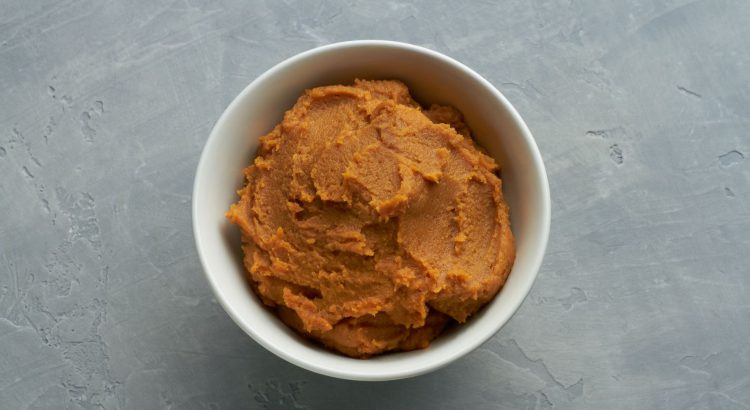
Cod with Miso Squash Puree
If you haven’t already, add miso to your seasoning repertoire! From a culinary standpoint, it is full of rich, savory umami flavor and it’s an excellent addition to sauces, marinades and spreads. But there are potential health benefits to miso as well. Miso paste is a seasoning used throughout East Asia and is known by many names. It’s been a staple for thousands of years, with evidence of its use dating back to around 500 BCE. If it’s been around that long, you know it’s good stuff!
Despite miso’s long history, research on its health benefits is new and few. As a fermented food, it seems to have many of the same health benefits of products we may be more familiar with, such as yogurt. Miso also seems to share many of the health benefits we from soy food, as it’s often made from a combination of soy and rice. It’s rich in isoflavones, which have been shown to help fight cancer and inflammation in the body. This cozy fall recipe will be a new favorite!
Serves: 2
Ingredients:
Asian Ginger Marinade
- 1/2 Tablespoon maple syrup
- 1 Tablespoon low sodium soy sauce
- 1 Tablespoon rice vinegar
- 1 Tablespoon olive or avocado oil
- 1 garlic clove, grated
- 1/2 teaspoon fresh ginger, minced or grated (about 1/2”)
- 1/2 cup finely chopped parsley
- 3/4 – 1 pound cod fish fillet
Butternut Squash Puree
- 1 medium butternut squash
- 2 teaspoons olive oil for roasting the squash
- 1 Tablespoon olive oil
- 1 Tablespoon white miso
- 1/4 teaspoon fresh ginger, grated
- 1–2 teaspoons lemon juice
Start by roasting the butternut squash. Preheat the oven to 400 degrees. Trim both ends of the butternut squash and cut it in half lengthwise. Using a spoon, scrape out the seeds. Drizzle olive oil over the cut side of both halves and sprinkle a teaspoon of salt over them. Place the halves face down on the baking sheet and cook in the oven for 30-40 minutes, until softened. Test with a fork.
While the squash is roasting, make the fish marinade by combining the maple syrup, low sodium soy sauce, rice vinegar, oil, garlic, ginger and parsley in a small bowl.
Place the cod into a baking pan just large enough to hold the fish*. Pour the marinade over the fish. Marinate from 30 to 1 hour while the squash is cooking. Once the squash is done scoop out the flesh of the butternut squash into a food processor. You should have about 1 1/2 – 2 cups.
Process the butternut squash with the butter, miso, and ginger until smooth. Add lemon to taste. Cover to keep warm. Put the cod into the oven, roast for 8-10 minutes until the fish is just barely cooked through and the edges flake easily with a fork. Don’t overcook. Divide the squash puree between 2 plates, Top with the fish. Spoon a few teaspoons of the pan juices over the fish.
Garnish with finely chopped fresh cilantro and microgreens (optional). Makes two servings.
Nutrition Facts:
Serving size: about 1 cup of squash and 1 fish fillet
Calories: 314; Fat: 8g; Carbs: 18.3g; Fiber: 2.3g; Protein: 44.9g; Sodium: 677mg
Recipe adapted from https://eatwellenjoylife.com/asian-cod-with-miso-butternut-squash-puree/
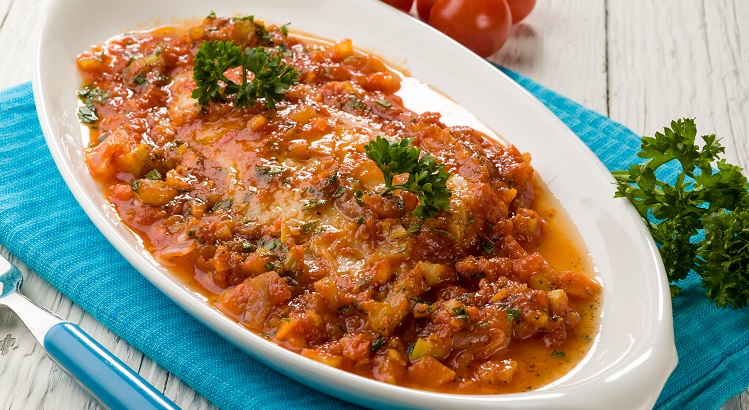
Tomato Stewed Trout
Trout doesn’t always come to mind when we are looking for a healthy fish. Typically, we think of salmon when considering foods high in heart-healthy omega-3 fatty acids, but other cold-water fish are great sources too, including trout, halibut, sardines and anchovies. These omega-3 fatty acids help balance your cholesterol levels, lowering the risk of developing heart disease. You can try any mild fish in this recipe; check out this chart to see what other seafood options are high in omega-3s.
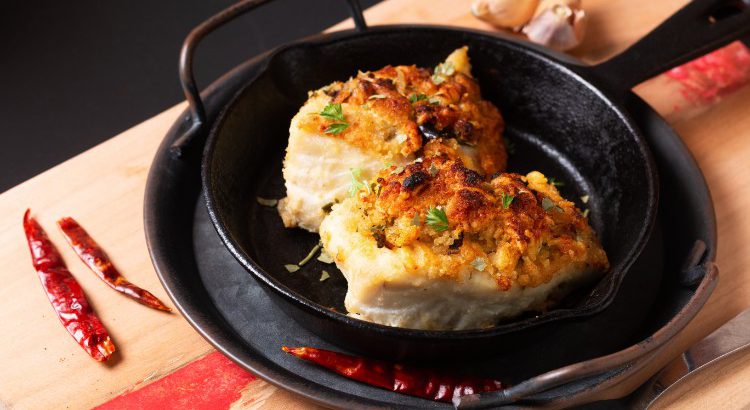
Baked Cod with Lemon and Garlic
Cod is a great fish to try if you are trying to incorporate more seafood as it has a mild flavor. Pair this delicious fish with your favorite whole grain or bean and a side salad for a well-balanced meal.
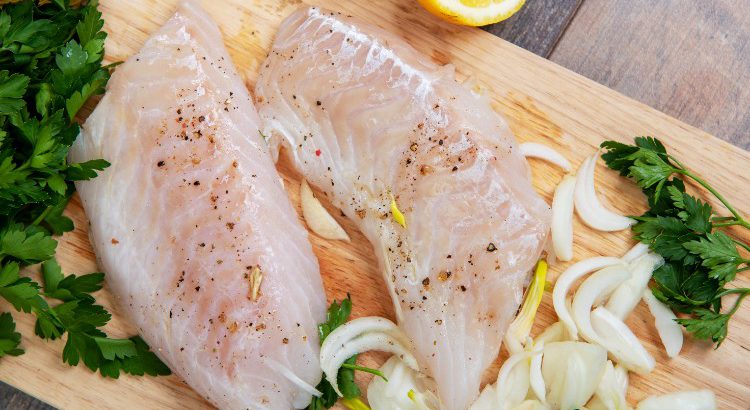
Cod with Broccoli and Potatoes
If you are someone that is trying to eat more fish for health, try this tasty cod recipe, which has a mild flavor compared to other types of fish. Cod is a great source of lean protein and pairs well with potatoes and broccoli for a well-balanced meal.
